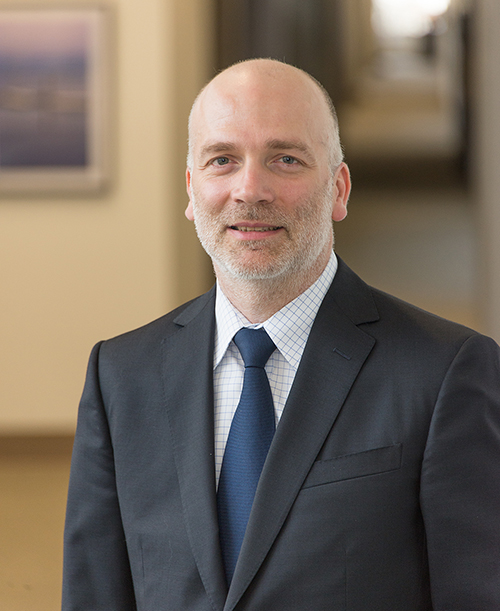
Michael Mengel, chair of the Department of Laboratory Medicine and Pathology.
UAlberta members of the Alberta Precision Laboratories (APL) played a leading role at the first joint gathering of world-class lab and pathology professionals recently in Pittsburgh.
More than 1,300 transplantation professionals from around the globe attended the September conference, which was sponsored by the American Society for Histocompatibility and Immunogenetics (ASHI) and the Banff Foundation for Allograft Pathology.
Seated at the leadership table of both organizations were Department of Laboratory Medicine and Pathology faculty members Patricia Campbell and Kim Solez. Campbell, a physician in internal medicine, serves as president of ASHI. Solez, a physician in anatomical pathology, has served as the Banff chair.
"We often recognize surgeons for their great work in organ transplantation, but rarely recognize the work that members of our own profession are producing," said Michael Mengel, chair of the Department of Laboratory Medicine and Pathology at the U of A. Mengel is also an Edmonton-based physician with APL, past-president of the Canadian Society of Transplantation and the incoming Banff chair.
"We have a superb transplantation program in Alberta," Mengel said. "The program is among the largest in Canada and we're conducting world-class innovative research. The work is being recognized internationally and professionals from the U of A and APL have been invited to provide leadership for these international meetings."
"Members of our academic department and APL are making important contributions," added Mengel. "Not only are we innovating, we're impacting patients and the quality of their lives."
With a goal to advance the science of organ transplantation, this joint meeting provided informative sessions and discourse about molecular diagnostics, while also recognizing the major innovations coming from labs and institutions in many countries.
Alberta's scientific team presented a total of 12 posters and 16 presentations-14 oral and two plenary- of which two received scholar awards.
In addition to the opportunity to share knowledge, the conference provided a platform to commercially launch a major molecular diagnostic innovation product-the Banff Human Organ Transplant (B-HOT) research panel-developed in Alberta as part of the international Banff consortium.
"This new panel will improve organ transplantation outcomes by enhancing our understanding of organ transplants at the molecular level in the era of precision health," said Mengel. "It will be used to accelerate the identification of new biomarkers of rejection, to uncover the mechanisms behind tissue damage and monitor toxicities brought on by immunosuppressive drugs and infections."